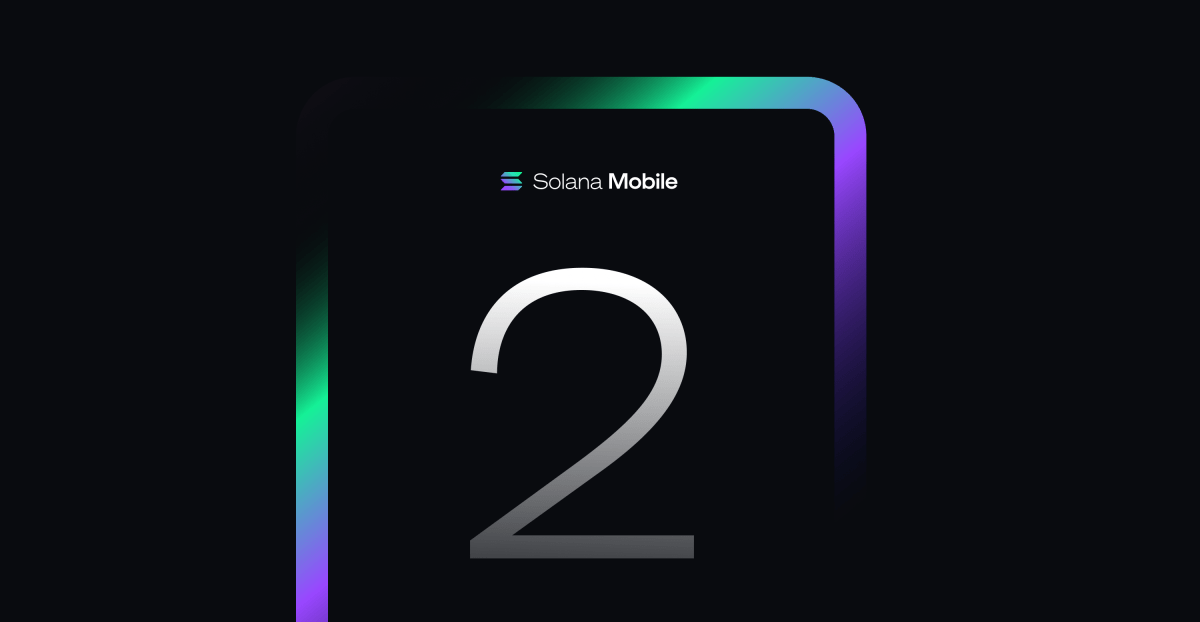Solana Mobile is making headlines once again after announcing the launch of its second web3 phone, “Chapter 2.” The company’s first handset, “Saga,” had a slow start but eventually sold out in the U.S. and European Union. With Chapter 2, however, demand has soared and the device has already surpassed 12 months worth of sales for its predecessor in just the first 24 hours.
According to Raj Gokal, co-founder of Solana and president of Solana Labs, the company’s 7-day sales goal was met within the first day of the announcement. In fact, over 25,000 preorders were received in the first 24 hours and by the 30-hour mark, that number had reached 30,000. This level of excitement and demand has proven the potential of Solana Mobile’s new device.
Chapter 2 boasts similar features to Saga, runs on Android, and comes with a built-in crypto wallet, a Seed Vault, and a “dApp store” for decentralized crypto applications. The new device is priced at $450, making it more affordable than the Saga’s $599 price tag. According to a Solana spokesperson, Chapter 2 is expected to ship in the first half of 2025.
For developers, Gokal sees Solana Mobile as a valuable opportunity to incentivize users of crypto apps. He explains, “It gives them a concentrated distribution channel to dedicated users without the prohibitive fees of app stores.” This opens up new possibilities for developers to reward their users and potentially attract even more users to their apps.
When Solana’s first smartphone, Saga, launched in mid-2023 at a price of $1,000, it did not receive much attention or demand. The company quickly reduced the price to $599, which still didn’t make a significant impact. Tech YouTuber Marques Brownlee even gave it the title of “Worst New Phone of 2023” and called it a “bust.”
However, the tides turned when BONK, a memecoin with a dog theme, announced that it would be providing 30 million BONK tokens to Saga owners for free through its dApp. This resulted in the Saga selling out almost immediately. Other dApps followed suit and began offering similar rewards, bringing more attention and demand to the phone.
Gokal explains, “As the market rebounded in Q4 of last year, the Saga sold out, with the majority of sales happening in just two days in December.” The response from the community was overwhelming, with thousands of requests for more phones pouring in daily.
With Chapter 2, Solana is looking to replicate the success of Saga. However, there will be some differences. The Saga genesis token, a non-transferrable NFT that came with each phone and allowed owners to redeem rewards, will not be available for Chapter 2 owners. But the company plans to incorporate learnings from the Saga experience into the new device.
Gokal highlights the importance of giving back to the community, saying, “As more developers release crypto-incentivized apps to Solana Mobile users, we’ll see even greater adoption.” The Chapter 2 has already launched with the support of sponsors like Backpack, Tensor, Phantom, Solflare, Magic Eden, and Drip, all of whom plan to reward owners.
According to Gokal, Chapter 2 has been in development for over a year. The company’s goal was to provide complete freedom for crypto developers and users with no restrictions on tokens or NFTs and no prohibitive fees. The result is a device that is focused on wider distribution and accessibility and is flexible for both developers and users.









[…] you’d like to receive a roundup of the biggest and most noteworthy crypto stories from TechCrunch every Thursday at 12 p.m. PT, be sure to subscribe […]